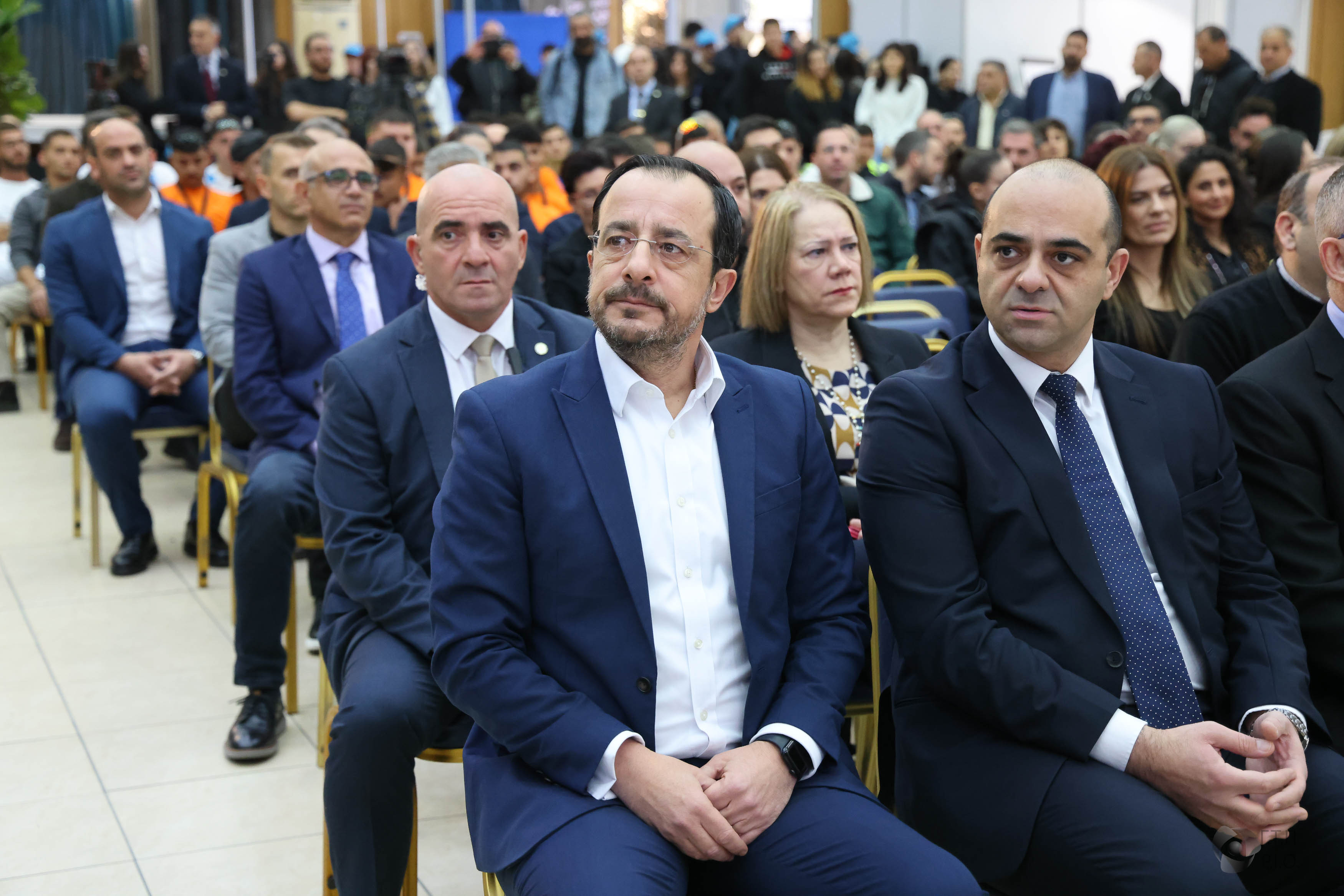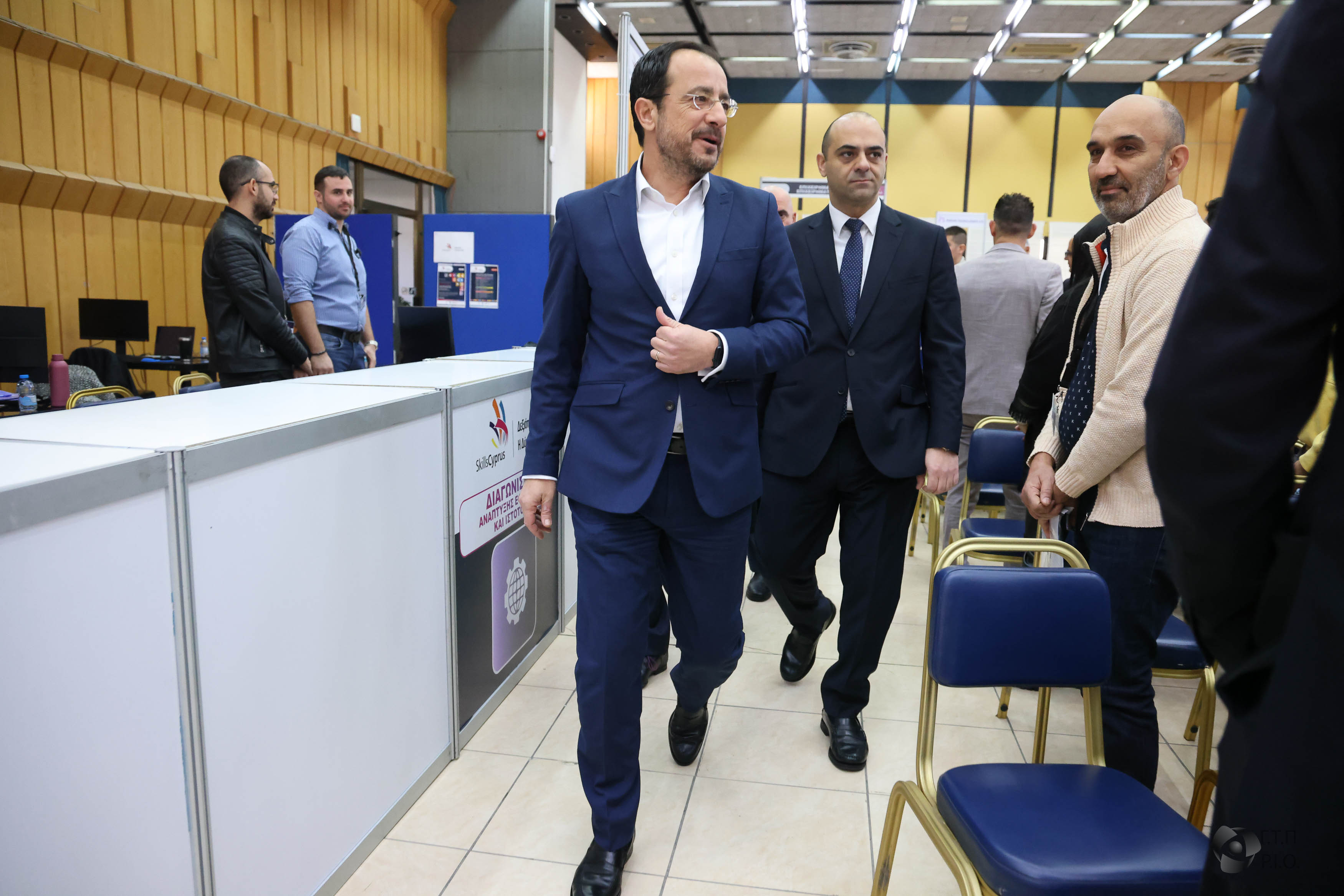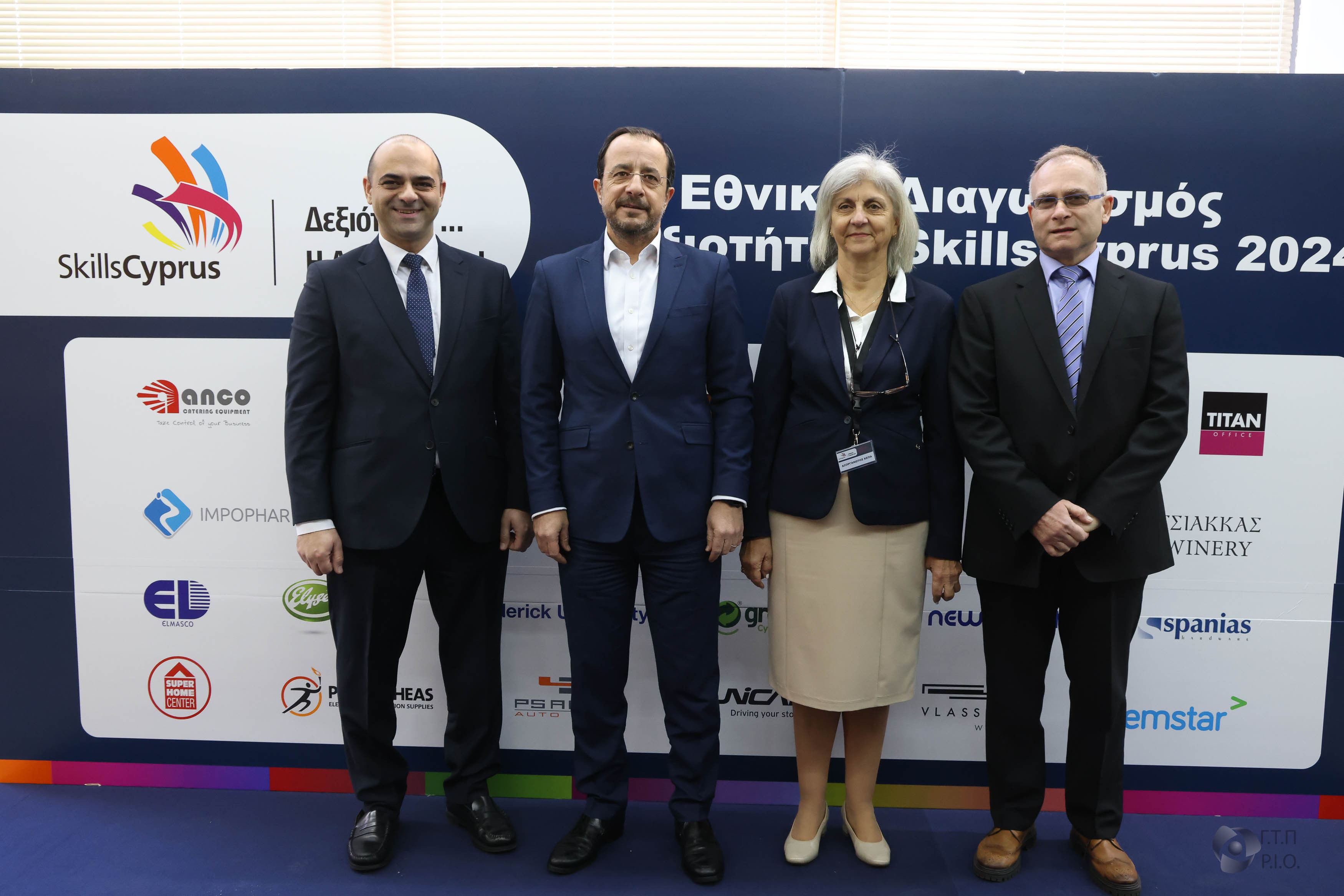President Nikos Christodoulides on Thursday said there was an urgent need to link education with the labour market, in order to equip Cyprus’ youth for the demands of the modern economy.
Speaking at the opening of the 8th National Skills Competition in Nicosia, Christodoulides underlined the role of skills development in boosting individual potential and strengthening the nation’s economic competitiveness.
“Skills are not just a personal asset; they are the foundation for a society’s progress,” the president said.
“Europe lags behind the United States, particularly in productivity,” he added. “We must address this gap urgently.”
The event, organised biennially since 2010 by the Labour Ministry productivity centre, aims to promote technical and vocational training, innovation, and productivity.
The president commended the competition’s success and announced a government decision to double the prize money, with the first prize now set at €2,000.
“This is a small but significant gesture of the importance we place on this institution,” he explained.
Moreover, president Christodoulides reiterated the government’s commitment to aligning education with labour market needs.
“It is not enough to cover vast amounts of material in education,” he said.
“We must foster critical thinking and help our young people develop skills that will prepare them for the future,” he added.
He also revealed plans to establish a technical secondary school by 2025, inspired by the successful models of Cyprus’ athletic and musical secondary schools.



“We need to reinvest in technical education because it represents the future of our country,” he stated.
Referring to past decisions, he described the closure of the Higher Technical Institute as “a grave mistake” and underscored its value in bridging the gap between theoretical and practical learning.
The president also spoke about the introduction of career guidance starting from primary school as part of efforts to improve vocational training.
“It’s essential to involve the private sector in career counselling to address the real needs of the labour market,” he said.
Discussing broader European issues, Christodoulides referenced a report by former Italian Prime Minister Mario Draghi, which urged the EU to accelerate its efforts in competitiveness.
“The European Year of Skills in 2023 marked the start of this conversation,” he said. “But every year should be a year of youth and skills.”
The president also outlined how Cyprus has embraced this initiative, with over 20,000 people participating in programmes under pillars such as “Contemporary Professional Culture Development” and “Targeted Social Learning”.
Saying that this is an era of rapid technological advancements, the president stressed the importance of adaptability.
“Jobs that were in high demand 20 years ago have vanished, while new fields require skills we’re still working to provide,” he said.
To address these challenges, he proposed a framework for evaluating and certifying micro-skills to match emerging market needs.
Addressing the participants, Christodoulides urged them to seize every opportunity for growth.
“Your potential is limitless, but you must believe in your abilities,” he said. “Our country needs your fresh ideas and energy to build a future of innovation and progress.”
In addition, he reaffirmed the government’s dedication to supporting initiatives that empower the younger generation.
The president also said that the National Skills Competition continues to play a pivotal role in nurturing talent and fostering a culture of innovation among Cyprus’ youth.
“Together, we can create a society that supports the dreams and aspirations of the new generation,” Christodoulides concluded.


